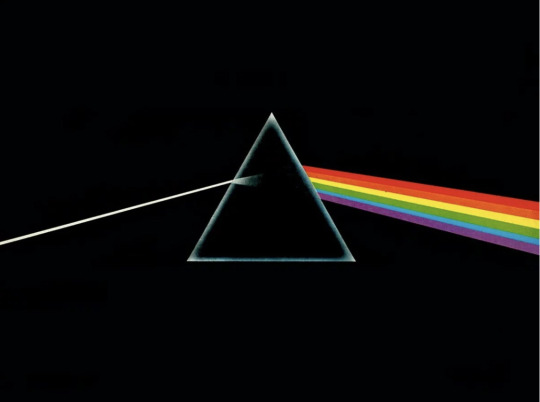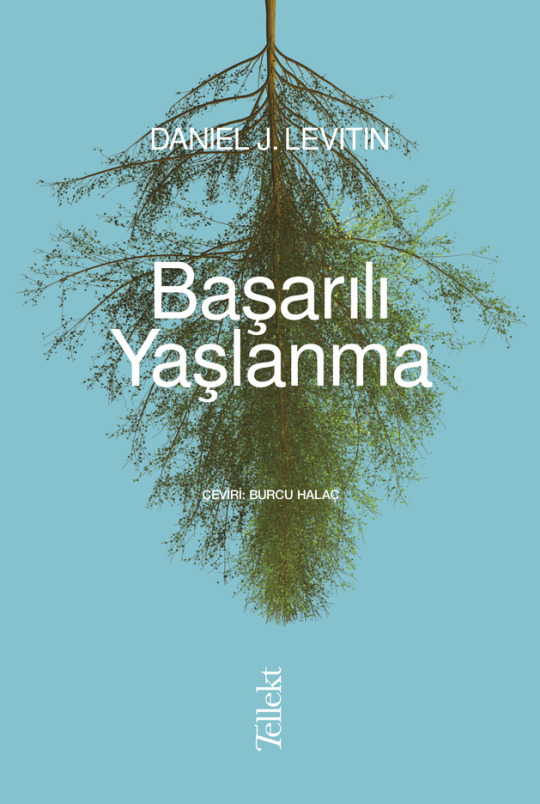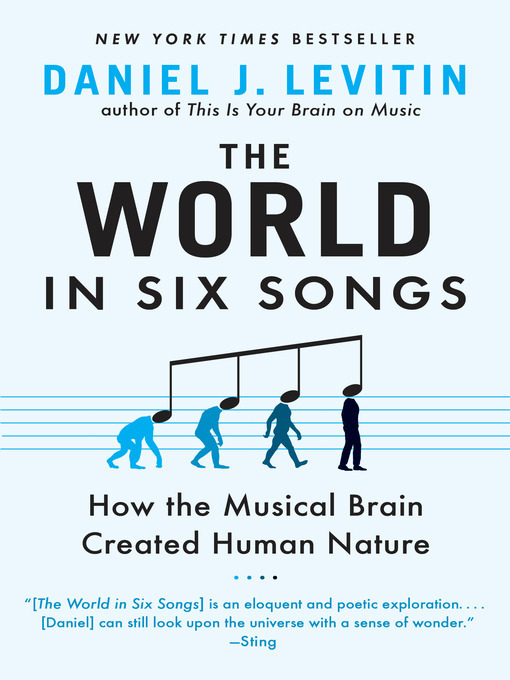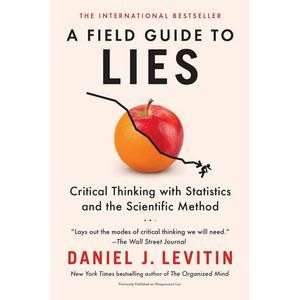#daniel levitin
Text

Psychoanalyst Daniel Levitin Psychoanalyses Dark Side of the Moon on NPR
While limited use of psychedelics can, “in the context of spiritual growth and therapy,” be “positive,” herculean doses such as those taken by Syd Barrett are not.
“But sometimes the ego can dissolve and dissociate, and you become crazy,” neuroscientist and super-Pink Floyd fan Daniel Levitin told NPR’s Leyla Fadel in a discussion of the Dark Side of the Moon’s 50th anniversary, March 1, 2023.
“Syd was unreliable as a bandmate,” Levitin, author of “This is Your Brain on Music,” said.
“He missed gigs. He was paranoid. And on stage, he would sabotage the performances or not play at all. His bandmates tried to get him to a psychiatrist, but he wouldn’t go. And so they kicked him out in 1968.”
Five years later, the band released Dark Side, an album oozing with “themes of madness and alienation,” as Levitin puts it.
“We can’t know for sure which specific lyrics were about Barrett, as opposed, more generally, to mental anguish,” he said. “But listen, the very first thing you hear on the record is that haunting heartbeat and some machine sounds and voices. And I always imagined it as a mental hospital.”
Five decades on, Levitin says Dark Side of the Moon is “a cultural touchstone” - something highly personal to Pink Floyd that’s become universal.
“That final lyric where ‘the sun is eclipsed by the moon - maybe it’s a metaphor,’” he says. “Syd was the sun of the band, the brightest spot. And (Roger) Waters was the moon and overtook him.”
3/2/23
#pink floyd#the dark side of dimensions#npr#syd barrett#roger waters#david gilmour#nick mason#richard wright#daniel levitin#leyla fadel#this is your brain on music
15 notes
·
View notes
Text

Advice I have rediscovered after my reading habit plummeted last month and this month. Yet I am able to obsessively rewatch the same films, the same TV show episodes, and the same music (I am an obsessive relistener!). So why not the same books? Daniel Levitin summarises the brilliant response of Seneca the Younger.
#daniel levitin#seneca the younger#seneca#reading#nero#roman history#roman#advice#bookblr#reading habit
0 notes
Text
New Post has been published on Books by Caroline Miller
New Post has been published on https://www.booksbycarolinemiller.com/musings/happy-90th-gloria/
Happy 90th Gloria!

A writer near my age admitted on Facebook that though she loved the feel of paper between her fingers and the smell of a new book, she’d shifted to an e-reader. No longer comfortable with small print, she needed an electronic device to adjust for size. Much in life is a tradeoff. The earth has a polar wobble, which is natural, but growing more pronounced because humans are pulling quantities of water from the aquifer. Global construction is at an all-time high. That makes sand, a key ingredient in cement, a valuable commodity. The scarcer it becomes, the more illegal mining grows. Today, quarrying sand is a $200 billion to $300 billion industry, making it more valuable than gold, logging, and fishing combined. Developments in technology may ameliorate some of these challenges. Reading devices that adjust print size is an example. Sometimes, though, the remedy poses new problems. Think of all those passwords we need to maintain our internet accounts. A woman In my late 80s, I’d like to see the world slow down. Is there technology for that? In his book, Successful Aging, Daniel J. Levitin warns that clinging to the past isn’t good for human health. Old folks should keep looking forward. That’s easy for him to say. He’s not at the end of the line trying to keep up. On the plus side, Levitin writes that old folks have an edge over the young. Wisdom enables them to make good decisions. They’ve lived long enough to discern patterns in nature and human behavior. A newborn may cry, terrified by its first glimpse of the sun, but adults head for the beach hoping for enough sand to throw down a towel. Lacking experience, young people’s judgments are prone to err. Many, for example, criticize Joe Biden’s slow response to the tragedy unfolding in Gaza. As the head of a powerful country, they presume he has levers to pull to affect change. Yet not since Teddy Roosevelt’s interventions in Latin America during the 1900s has an American President imagined he could interfere with another nation’s sovereignty and escape paying a political price–the incursions being short-lived or ending in failure. The heady era of being a dominant player among weaker countries is history. Today, democratic nations exercise diplomacy rather than brute force. Biden has an edge on that score. He knows the world players, the genesis of foreign quarrels, and the cards each country’s leader is likely to hold. True, he hasn’t sold Benjamin Netanyahu on a two-state solution for Israel and Palestine. But Netanyahu isn’t thinking about the future. An unpopular figure in his country, he clings to power because of the war, holding fast to it the way a man lost at sea clings to an ice float even though it’s melting. Youth may see Biden’s politics in the current conflict as uncaring, but their viewpoint may be too simple. The suffering in Gaza is unconscionable, agreed. But, so far, Biden has kept our alliances intact in the Middle East; held Iran at bay; secured world trade by monitoring the Suez Canal, and made talks about a two-state solution credible. Not bad for a man forced to dance with wolves. In a bad world, only a fool looks for rainbows. Hal Brands in an edition of Foreign Affairs argues that given the current morality, “…the only way to protect a world fit for freedom is to court impure partners and engage in impure acts.” (“The Age of Amorality,” by Hal Brands, Foreign Affairs March/April, pg. 106.) Brands’ advice may be repugnant to young minds and old ones as well, but the difference between youth and age is that the latter is more pragmatic. Older people know that facing reality doesn’t mean giving up ideals. It means they may see taking a step backward as a prelude to moving forward. Nothing I’ve written diminishes the contributions young people make in the world. Innovation flows from their plastic brains the way stars burst from a supernova. I doubt an 80-something could have invented Bitcoin. Because our complex problems require complex responses, neither youth nor age should be banished from the stage. We achieve more when we make room for each other. Gloria Steinem turns 90 this month. After the loss of Roe v. Wade, she hasn’t given up on women’s rights. When a fan asked if she was planning to toss her torch to someone else, her reply was unequivocal. “I’m holding on to my torch. I’ll let other people light theirs from mine.” (Successful Aging, by Daniel J. Levitin, Random House, 2020, (large print edition by Penguin) pg. 662.) Happy Birthday, Gloria!
#Successful Aging#The Age of Immorality#Benjamin Netanyahu#Daniel J. Levitin#e-readers v books#earth's polar wobble#Gloria Steinem#Hal Brands#illegal sand mining#Joe Biden#politics in Middle East#Teddy Roosevelt#youth criticises Biden's Gaza response
0 notes
Text

An excellent book. Learn about the neurological events that are going on in your head when you listen to your favorite tunes and find out how they probably became your favorite tunes in the first place.
#princelysome#2023#books i've read#kindle#ohio digital library#daniel j. levitin#this is your brain on music
1 note
·
View note
Text
Daniel J. Levitin – Başarılı Yaşlanma (2023)
Bazı insanlar diğerlerinden daha iyi yaşlanır.
Bunun nedeni genetik, kişilik, sosyoekonomik durum ya da salt şans mıydı?
Beyinde bu değişimlere yol açan neler yaşanıyor?
Yaşlanmaya eşlik eden bilişsel ve fiziksel yavaşlamayı engellemek için neler yapabiliriz?
Pek çok insan seksenli ve doksanlı yaşlarına iyi bir şekilde gelirken, diğerleriyse yaşamdan elini ayağını çekmiş, kendi zafiyetlerinin…

View On WordPress
0 notes
Text
Just because someone quotes you a statistic or shows you a graph, it doesn’t mean it’s relevant to the point they’re trying to make. It’s the job of all of us to make sure we get the information that matters, and to ignore the information that doesn’t.
Daniel J. Levitin, A Field Guide to Lies: Critical Thinking in the Information Age
93 notes
·
View notes
Text
(\ (\
(„• ֊ •„)
━O━O━━━━━━━━━
・:。Lista de livros que quero ler 「 ✿ 」・:三
━━━━━━━━━━━━━
A divina comédia - Inferno, Purgatório, Paraíso (Dante)
Coleção diário de um banana 3+
O poder do hábito (Charles Duhigg)
Teorias da aprendizagem (Marco Antonio Moreira)
O morro dos ventos uivantes (Emilly Bronte)
Ética (Spinoza)
Treino de matemática para crianças com TEA (Claudia, Alisson e Telma)
Neurociência da mente do comportamento (Roberto Lent)
Neurociência e reabilitação terapia ocupacional (Noomi Katz)
Neurociência e educação como o cérebro aprende (Ramon e Leonor)
Juju vai viajar… O ciclo da água
Atividades e Brincadeiras
A última formiga (Jane Prado)
Professora sim, tia não (Paulo Freire)
A propriedade (José de Alencar)
Sonhos D'Ouro (José de Alencar)
Papéis avulsos (Machado de Assis)
Eu sou o número quatro (Pittacus Lore )
Ubirajara (José de Alencar)
Rápido e devagar duas formas (Daniel Kahneman)
Pedagogia da esperança (Paulo Freire)
Os segredos da mente milionária (T. Harv Eker)
Série Ramsens 1 - O filho da luz vol. 01 (Christian Jacq)
Pai contra Mãe (Machado de Assis)
A pata da gazela (José de Alencar)
Depois da escuridão (Sidney Sheldon)
O Caso Tutankhamon (Christian Jacq)
O Mulato (Aluíso de Azevedo)
Casa de Pensão (Aluíso de Azevedo)
A chave do tamanho (Monteiro Lobato)
História da Meia-noite (Machado de Assis)
Esaú e Jacó (Machado de Assis)
A Condessa Vésper (Aluíso de Azevedo)
Dicionário Etimológico da Mitologia Grega
Deus, um delírio (Richard Dawkins)
Senhora (José de Alencar)
Clara dos Anjos (Lima Barreto)
Memórias Póstumas de Brás Cubas (Machado de Assis)
Marquês de Rabicó (Monteiro Lobato)
O homem que sabia javanês (Lima Barreto)
Antologia Grega: a Musa dos rapazes (JESUS, Carlos A. Martins)
Caçadas de Pedrinho (Monteiro Lobato)
O espelho (Machado de Assis)
Diário Intimo (Lima Barreto)
Mídias sociais
Emília no País da Gramática (Monteiro Lobato)
A importância do ato de ler (Paulo Freire)
O velho senado (Machado de Assis)
Pequeno livro dos Deuses Olímpicos (Paulina T. Nólibos)
Jeca Tatuzinho (Monteiro Lobato)
O enfermeiro (Machado de Assis)
Cronos, Zeus e outros que tais... (Projeto com vários alunos AEGP)
Mitos Gregos (Paulo Sérgio de Vasconcelhos)
Várias histórias (Machado de Assis)
O Príncipe (Maquiavel)
Contos e Lendas da Mitologia Grega (Claude Pouzadoux)
FREAKONOMICS O lado oculto e inesperado de tudo que nos afeta (Malcom Gladwell)
O caso da vara (Machado de Assis)
Os Bruzundangas (Lima Barreto)
Contos Fluminenses (Machado de Assis)
A carteira (Machado de Assis)
Relíquias de casa velha (Machado de Assis)
O gaúcho (José de Alencar)
O garatuja (José de Alencar)
Mascates (José de Alencar)
Extensão ou Comunicação (Paulo Freire)
Labirinto (Kate Mosse)
As aventuras secretas de um Gay discreto
Ocidentais (Machado de Assis)
A lógica do consumo (Martin Lindstrom)
Romances e Contos completos (Machado de Assis)
O ratinho, o gato e o galo (Monteiro Lobato)
Contos de Lima Barreto (Lima Barreto)
O eu profundo e os outros eus (Fernando Pessoa)
Sertanejo (José de Alencar)
Uns braços (Machado de Assis)
Mente organizada (Daniel J. Levitin)
Teoria do medalhão (Machado de Assis)
História sem data (Machado de Assis)
A Arte da Procrastinação (Jhon Perry)
Quincas Borba (Machado de Assis)
Hércules Furioso: a eplepsia na tragédia grega (Paloma da Silva BRITO)
O Saci (Monteiro Lobato)
Cinco minutos (José de Alencar)
Política e Educação (Paulo Freire)
A viuvinha (José de Alencar)
Mitologia Grega (Cauan Segamachi Ferreira)
O código da Vinci (DanBROWN)
100 Histórias Infantis (Vários autores)
Um Ápologo (Machado de Assis)
Maravilho universo do sítio (Monteiro Lobato)
O Alienista (Machado de Assis)
Diva (José de Alencar)
Inventando ANNA (Rachel Deloache Williams)
Cartas aos estudantes (Clemente Ivo Juliatto)
Aurora (Nietzsche)
Assim falou Zaratustra (Nietzsche)
O anticristo (Nietzsche)
Dossiê de Nietzsche
O conde de Monte Cristo (Alexandre Dumas)
O dilema do porco espinho (Leandro Karnal)
Metodologia do Ensino História e Geografia 4
O ensino de Geografia e a suas linguagens (Rosane Rudnick)
Fundamento Epistemológico da Geografia (Luis Lopes)
Dificuldades Específicas de Aprendizagem (Diana Hudson)
Fundamento de Didática (Alessandro de Melo e Sandra Terezinha)
Educação Física e populações especiais (Maria de Fátima e Thaís Pacheco)
Uma introdução à Filosofia da Linguagem (Max William)
Lógica para Pedestres (Erickson C. dos Santos)
Filosofia da mente (Walter Menon)
Educação, Gênero e Sexualidade: (IM)Pertinências (Fernando Seffner e Jane Felipe)
Compreender e interpretar desenhos infantis (Georges Cognet e Anna Cognet )
Psicopedagogia (Gislene, Lucila, Evely, Rosely)
O processo KAFKA
Dez de Dezembro (George Saunders)
O palhaço e o psicanalista (Christian Dunker e Cláudio Thebas)
Marília de Dirceu (Tomás Antônio Gonzaga)
Viva com esperança (Finley e Landless)
Avaliação voz da consciência da aprendizagem (Ivo José Both)
Epistemologia das ciências sociais (Susana Salete Raymundo Chinazzo)
Sherlock Holmes 2
Sherlock Holmes 3
Sherlock Holmes 4
O fantasma do porão (Hora do espanto)
2 notes
·
View notes
Text
Book List: Maestromind
For the "siren" archetype; a villain with mind control powers through music.
Every Brain Needs Music: The Neuroscience of Making and Listening to Music by Lawrence Sherman, Dennis Plies
Your Brain on Art: How the Arts Transform Us by Susan Magsamen, Ivy Ross
The Aesthetic Brain: How We Evolved to Desire Beauty and Enjoy Art by Anjan Chatterjee MD
How Music Works by David Byrne
Musicophilia: Tales of Music and the Brain by Oliver Sacks
Music: A Subversive History by Ted Gioia
This Is What It Sounds Like: What the Music You Love Says About You by Susan Rogers, Ogi Ogas
Why You Like It: The Science and Culture of Musical Taste by Nolan Gasser
Every Song Ever: Twenty Ways to Listen in an Age of Musical Plenty by Ben Ratliff
Why You Love Music: From Mozart to Metallica--The Emotional Power of Beautiful Sounds by John Powell
The Psychology of Music: A Very Short Introduction by Elizabeth Hellmuth Margulis
On Repeat: How Music Plays the Mind by Elizabeth Hellmuth Margulis
Music, Math, and Mind: The Physics and Neuroscience of Music by David Sulzer
Emotion and Meaning in Music by Leonard B. Meyer
Musical Emotions Explained: Unlocking the Secrets of Musical Affect by Patrik N. Juslin
The Science-Music Borderlands: Reckoning with the Past and Imagining the Future by Elizabeth H. Margulis (Editor), Psyche Loui (Editor), Deirdre Loughridge (Editor)
The Song Machine: Inside the Hit Factory by John Seabrook
The Billboard Guide to Writing and Producing Songs that Sell: How to Create Hits in Today's Music Industry by Eric Beall
On Music Theory, and Making Music More Welcoming for Everyone by Philip Ewell
The Oxford Handbook of Music and the Brain by Donald Hodges (Editor), Michael Thaut (Editor)
The Science of Music and the Music of Science: How Music Reveals Our Brain, Our Humanity and the Cosmos by Michael J. Montague
How to Listen to Jazz by Ted Gioia
The Musical Human: A History of Life on Earth by Michael Spitzer
The World in Six Songs: How the Musical Brain Created Human Nature by Daniel J. Levitin
MUSIC AND THE MIND by Anthony Storr
This Is Your Brain on Music: The Science of a Human Obsession by Daniel J. Levitin
Philosophy of the Arts: An Introduction to Aesthetics by Gordon Graham
Art, Aesthetics, and the Brain by Joseph P. Huston (Editor), Marcos Nadal (Editor), Francisco Mora (Editor), Luigi F. Agnati (Editor), Camilo José Cela Conde (Editor)
Philosophies of Art and Beauty: Selected Readings in Aesthetics from Plato to Heidegger by Albert Hofstadter (Author, Editor), Richard Kuhns (Author, Editor)
Aesthetics: A Comprehensive Anthology (Blackwell Philosophy Anthologies) by Steven M. Cahn (Editor), Stephanie Ross (Editor), Sandra L. Shapshay (Editor)
The Cambridge Handbook of the Psychology of Aesthetics and the Arts by Pablo P. L. Tinio (Editor), Jeffrey K. Smith (Editor)
Of Sound Mind: How Our Brain Constructs a Meaningful Sonic World by Nina Kraus
The Rest Is Noise: Listening to the Twentieth Century by Alex Ross
#book list#music magic#musicology#mind control#villainess#villain archetype#villain aesthetic#aesthetic book list#dark academia#study guide#music study guide#dark academia study guide
3 notes
·
View notes
Text
Self help books
*1. "The 7 Habits of Highly Effective People" by Stephen Covey
2. "How to Win Friends and Influence People by Dale Carnegie
3. "Think and Grow Rich" by Napoleon Hill
4. "The Power of Now" by Eckhart Tolle
5. "The Four Agreements" by Don Miguel Ruiz
6. "The Alchemist" by Paulo Coelho
7. "The Secret" by Rhonda Byrne
8 "Awaken the Giant Within" by Tony Robbins
9. "Man's Search for Meaning" by Viktor E. Frankl
10. "The Road Less Traveled by M. Scott Peck
11. "The Power of Positive Thinking" by Norman Vincent Peale
12. "The Art of Happiness" by Dalai Lama XIV and Howard C. Cutler
13. "The 5 Love Languages" by Gary Chapman
14. "Mindset" by Carol S. Dweck
15. "The Miracle Morning" by Hal Elrod
*16. "The One Thing" by Gary Keller and Jay Papasan
17. "Getting Things Done" by David Allen
*18. "Atomic Habits" by James Clear
19. "Unlimited Power" by Tony Robbins
20. "The Compound Effect by Darren Hardy
21. "You Are a Badass" by Jen Sincero
22 "The Success Principles" by Jack Canfield
23. "The Law of Attraction" by Esther and Jerry Hicks
*24. "The 80/20 Principle" by Richard Koch
25 "The Lean Startup' by Eric Ries
26. "The E-Myth Revisited" by Michael E. Gerber
27. "Crush It!" by Gary Vaynerchuk
28. "The Art of Possibility by Rosamund Stone Zander and Benjamin Zander
29. "The One Minute Manager" by Kenneth H. Blanchard and Spencer Johnson
30 "The Compound Effect' by Darren Hardy
31. "The Gifts of Imperfection" by Brené Brown
32. "The 10X Rule" by Grant Cardone
33. "The Lean Entrepreneur" by Brant Cooper and Patrick Vlaskovits
34. "The Art of Non-Conformity by Chris Guillebeau
*35. "Essentialism" by Greg McKeown
36 "The Power of Full Engagement" by Jim Loehr and Tony Schwartz
37. "The Big Leap" by Gay Hendricks
38 "Mind Over Mood" by Dennis Greenberger and Christine Padesky
*39 "The Now Habit" by Neil A. Flore
40. "The Happiness Project" by Gretchen Rubin
Productivity books
1. "Getting Things Done" by David Allen
*2. "The 7 Habits of Highly Effective People" by Stephen Covey
3. "Deep Work" by Cal Newport
*4. "Atomic Habits" by James Clear
*5. "The One Thing" by Gary Keller and Jay Papasan
*6 "Essentialism" by Greg McKeown
7. "The Productivity Project" by Chris Bailey
8. "Smarter Faster Better" by Charles Duhigg
9. "Make Time" by Jake Knapp and John Zeratsky
10. "The Power of Habit" by Charles Duhigg
11. "Eat That Frog" by Brian Tracy
*12. "The 80/20 Principle" by Richard Koch
13. "The Pomodoro Technique" by Francesco Cirillo
14. "The Lean Startup" by Eric Ries
*15."The Now Habit" by Neil Fiore
16. "The Checklist Manifesto" by Atul Gawande
17. "Sprint" by Jake Knapp, John Zeratsky, and Braden Kowitz
18 "The War of Art" by Steven Pressfield
19. "The Compound Effect" by Darren Hardy
20. "The E-Myth Revisited" by Michael E. Gerber
21. "The Miracle Morning" by Hal Elrod
22 "Procrastinate on Purpose" by Rory Vaden
23. "The 4-Hour Work Week" by Timothy Ferriss
24 "The Organized Mind" by Daniel J. Levitin
25. "The Time Trap' by Alec Mackenzie and Pat Nickerson
26. "Flow" by Mihaly Csikszentmihalyi
27. "The Willpower Instinct by Kelly McGonigal
28 "Time Management for System Administrators" by Thomas A. Limoncelli
29 "The Goal" by Eliyahu Goldratt
30. "The Way We're Working Isn't Working" by Tony Schwartz
31. "The Art of Stress-Free Productivity" by David Allen
32 "First Things First" by Stephen Covey
33. "The Productivity Handbook" by Paul J. Meyer
34. "The Art of Getting Things Done" by David Allen
35. "The Procrastination Equation' by Piers Steel
36. "Rework" by Jason Fried and David Heinemeier Hansson
37. "Do More Great Work" by Michael Bungay Stanier
38. "The Time Paradox" by Philip Zimbardo and John Boyd
39. "Make It Stick" by Peter C. Brown, Henry L Roediger III, and Mark A. McDaniel
40. "The Motivation Manifesto' by Brendon Burchard
5 notes
·
View notes
Text
Tagged by @morninglesss
your name? Rab
your sun sign? Leo-ish
the last thing you listened to? “Summer” by moby
what are you wearing? One of several pairs of very specific grey poly-nylon cargo pant type things that I have worn for decade(s), a brown graphic t-shirt with a picture of cartoony link from the legend of zelda, blowing into an NES cartridge like it's a pan flute.
how tall are you? 5’11”
piercings? Just you, by my eyes.
tattoos? When I was twelve, I scratched "I AM THE WALRUS!" into my arm with a compass, and the scar stayed visible for most of the year, but it did eventually fade and tan away. I don't know that that counts.
glasses? contacts? I see fairly well, so no. One day, probably. I do spend most of my life looking at screens.
last drink? Having a mug of tea with probably not enough milk. Bit bitter.
last thing you ate? I had a banana/strawberry/chocolate smoothie this morning. It's now 3:06pm. I should probably have lunch. We'll see if I have it before 4.
any pets? My tabby cat Viola is 13 or 14, and has trouble shitting in the designated places she is supposed to shit, and it has really put a wedge in our relationship. She doesn't pointlessly meow at me as often, though, so there's a small plus.
do you have a crush on anyone? I am sometimes the subject of crushes, and I am not immune to them myself.
favourite fictional characters? So many of the books I love have unnamed narrators, now that I think of it. Indiana Jones, naturally. Siegward of Catarina is a bro. Lucatiel of Mirrah is sad bae. Batman. Green Arrow. Swamp Thing... Solid Snake/Big Boss? My interests are too nerdy.
a movie you think everyone should watch? Delicatessen. Maybe "Her", too.
a book you think everyone should read? Cat's Cradle by Kurt Vonnegut, Jr. - Maybe also "This is your brain on music" by Daniel Levitin, for information purposes.
the last place you travelled? It's been a while since I've been anywhere but my apartment, but the furthest in a while was western pennsylvania - which is not actually that far away, I just don't leave the house.
tagging (again), @shadows-chaos-contd and @mypunchbag
3 notes
·
View notes
Link
Dark Side of the Moon can be enjoyed for its far-out sonic landscapes or its inventive production, which reveals new surprises with every listen. You can also study its lyrics – much of Roger Waters' writing was inspired by a former member of Pink Floyd, Syd Barrett, who was forced to leave the band he'd helped found after his behavior became too erratic, influenced in part by drug use and in part by fame. Some say it was a psychotic break.
2 notes
·
View notes
Text
"The power of art is that it can connect us to one another, and to larger truths about what it means to be alive and what it means to be human." ~ Daniel Levitin
EXTRACT: Part historical reflection, part social experiment, JR's "La Nascita" turns Milan’s Stazione Centrale railway station — the city’s busiest transport hub and a notorious hotspot for petty crime — into a place of chance encounters.
“In spaces that have social issues, my work is about bringing people together. In a place like this, a huge range of people come to catch the train. When they find themselves in front of an exhibition, they will suddenly have a different kind of interaction.
"While the exhibition is temporary, even when it's gone visitors will never see [the station] in the same way. Changing perspectives on things is always a way of looking at the world differently, and that’s what I always aim to do, no matter the circumstances.” ~ JR
#The Art Newspaper#JR#LaNascita#trompeloeil#illusionart#exhibition#Milan#Italy#socialcommentary#artindustrynews#artmarket#publicart#AddictedArtGallery
1 note
·
View note
Text
José Carranza: el juglar piñonero.
“¡Ay! Praga, Praga… Praga, donde el amor naufraga, en un acordeón”: Joaquín Sabina, cantautor español.
Por: *Ramiro Elías Álvarez Mercado*.
Según el neurocientifico y músico estadounidense Daniel J. Levitin en su trabajo investigativo titulado “Tu Cerebro y La Música, el estudio de una obsesión humana”, “los instrumentos musicales figuran entre los artefactos más antiguos fabricados por el…

View On WordPress
0 notes
Text

A most interesting theory. This is an exceptionally well-written book.
#princelysome#2023#books i've read#ohio digital library#kindle#daniel j. levitin#the world in six songs
1 note
·
View note
Text
A Field Guide to Lies
A Field Guide to Lies: Critical Thinking with Statistics and the Scientific Methodby Daniel J. Levitin
Winner of the National Business Book Award
From the New York Times bestselling author of The Organized Mind and This Is Your Brain on Music, a primer to the critical thinking that is more necessary now than ever
We are bombarded with more information each day than our brains can…

View On WordPress
0 notes
Text
Story
Lagi capek aja kerja, makanya buka blank page di word buat nulis. Sebetulnya belum ngapa-ngapain yang bermakna banget juga sih seharian. Baru nyelesein nge-reply semua komen reviewer 2, terus mau lanjutin ke reviewer 3 tapi males. Nanti deh jam 3 mulai. Besok balikin lagi ngulang dari awal sambil masuk-masukin revisi di manuscript. Tadi makan siang di Linacre kenyang banget Alhamdulillah. Ada gnocchi ikan gitu sama carrot dan kentang(?), terus makan red velvet cake juga gede banget jadi ga habis. Ketemu sama Oliv dan temannya, dia nanya how’s writing, kujawab panjang lebar (ada apasih Non dengan tidak menceritakan segala keluh kesah ke orang lain?? Tapi ya emang just me being myself aja I guess). Dari situ, si temannya Oliv ini cerita tentang dia ambil geografi pas dulu undergrad dan intrigued dengan snowball earth. Terus dari situ ku jadi mengeluh gimana most of what we are doing in earth sciences is reconstructing earth history without no one actually being able to confirm the truth? Dan itu capek banget. Debat-debat yang ujung-ujungnya jawaban akhirnya adalah: “ya gatau juga ya ini bener apa nggak”. Tapi penting. Ini bukan ku lagi bilang apa yang selama ini ku pelajari ga berguna. Berguna banget. Kalau ga berguna u semua ni gaakan bakal bisa baca teks yang w tulis ini karena hp butuh listrik buat baterenya. Listrik dari mana? Di Indo, masih dari PLTU dominasinya (unless u pake solar panel dipasang di atap rumah). PLTU jalan karena batubara. Batubara itu apa? Literally swamp sediments yang kekubur dan kekompres. Kalo ga belajar histori bumi, tahu dari mana kita nyari batubara itu di mana? Iya intinya kalau mau dicari ujungya, gaada field ilmu yang ga berguna di dunia ini.
OOT iklan sebentar, tapi tadi pas makan sambil scrolling twitter (I will forever call it twitter, not sorry), ketemu tweet bagus banget bilang: “how beautiful the concept of rizq is, how the fruit that we are eating right now, has been destined to reach us since they are in seeds”. Intinya kalau rejeki gaakan ke mana. Ku jadi keingetan tweet ini karena ku barusan bilang di atas tentang gimana kalian bisa baca tulisanku ini, buat klen bisa sampe sini dan baca tulisan ini aja tu udah ditakdirkan sama Allah. HUHU. Merinding.
Anyway, balik lagi ke atas. Jadi intinya kan ilmu w ini adalah “mengarang cerita” yah, tentu saja berdasarkan bukti-bukti dan data-data saintifik. Dari mana kita tahu ada 5 big mass extinctions, kalau bulan itu pecahannya bumi, gempa bumi itu karena tectonic fault di batas lempeng (gaada orang yang beneran pernah ngeliat dengan mata kepala langsung kalau subduksi beneran terjadi), kalau kita lagi global warming, kalau bumi itu ada inti luar cair dan inti dalam padat, kalau dulu ada hewan yang namanya dinosaurus menguasai bumi (gaada yang pernah beneran lihat dinosaurus hidup), kalau ada gangguan sirkulasi udara di pasifik ekuatorial yang kemudian dikasih nama El-Nino dan La-Nina. Pokonya beneran semua yang kusebut barusan itu mengarang bebas aja kan ya. Hasil karangan dari berbagai recorded data, terus di-buat trend-nya, modelnya, terus di-publish as “truth for now”. Nanti akan ada orang lain yang menyanggah, kemudian “truth” ini di-revisi, dikoreksi, di-update/perbarui. Gitu aja terus.
Nah dari aku ngobrol itu ku jadi sadar, susah juga ye berarti jadi saintis kalau gabisa “mengarang cerita”, terutama buat orang basic science seperti aku yah, atau kupersempit lagi, terutama kalau kerjanya di earth science seperti aku. Terus ku jadi paham kenapa buat jadi saintis butuh high level of creativity juga. Pas nulis beneran bisa flowing kalau emang jago cerita. Pas baca paper juga bisa kita bedain mana orang yang nulisnya bagus mudah dimengerti, mana yang njelimet.
(Btw ku pas lagi nulis ini barusan di atas kedistrak baca e-book??? Lagi baca Daniel Levitin’s This is your brain on music: understanding a human obsession karena kepo aja sama kerja otak sendiri karena ku merasa music has a very important role indeed in my life. Ku nyelesein half chapter yang kemarin di rumah belum selesai kubaca karena perih banget mata baca font-font sekecil itu, baca di screen jauh lebih enak, bisa di-zoom pulak).
Anyway, iya sebetulnya gatau initeh awal mula mau nulis mau ngomongin apa. Cuma mau bilang aja: a great scientist is a good story-teller. Plus oot juga tapi semalam sama Listi di-suggest buat nonton Saskia Putri dan beneran 5 menit into the vid komenku langsung “buset ni orang ngomong rapi bener ye, artikulasinya bagus, susunan kalimatnya teratur, dengerinnya juga jadi enak”.
Berhubungan sama ini, sebetulnya ku juga mau ngasih commentary sih tentang moral etika dari menulis karena ku lagi baca Yellowface juga kan halfway. Yang menurutku sangat menarik konsepnya: a chinese-descendant (Kuang) writing a novel as a white woman stealing her chinese friend’s manuscript. What a good satire. Tapi sepertinya ku akan ngomongin ini semua nanti aja sambil ngereview bukunya.
Baiklah. Kembali ke R2R aka Response to Reviewer! Semoga the rest of the week goes well for all of you guys! Tinggal Jumat besok minggu ini!!! Hwaiting!
30.18 15:28 07/12/2023
1 note
·
View note